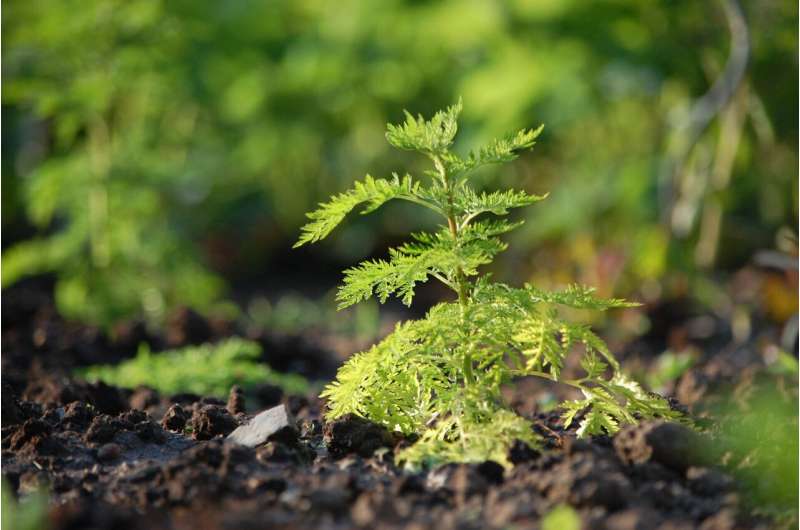Credit: Unsplash/CC0 Public Domain
A team of researchers affiliated with institutions in Denmark, Germany and Hong Kong has found that several extracts from the artemisia annua plant are active against the SARS-CoV-2 virus under laboratory conditions. In their paper published in the journal Scientific Reports, the group describes three extracts of the artemisia annua plant they tested and how they fared in combating the SARS-CoV-2 virus in human lung tissue. While the main focus of the pandemic has in recent months become the vaccines that are effective for prevention of COVID-19, work continues on treatments for those unvaccinated people who become infected with the SARS-CoV-2 virus.
Artemisia annua is a wormwood and is found in parts of Asia and North America. It is known commonly by a variety of names, such as sweet wormwood or sweet Annie. Its extracts are used as malaria treatments, and the most common treatment types are artemisinin-based. Derivatives of artemisinin include artesunate and artemether, both of which are used to treat malaria patients and come with a proven safety record. In this new study, the researchers sought to determine whether artemisinin or its derivatives might be effective for treatment of COVID-19 patients. To find out, they infected human tissue with the SARS-CoV-2 virus in petri dishes and then added artemisinin or its derivatives.
More specifically, the researchers first tested the extract and its derivatives on African green monkey kidney cells and found it to be effective against a strain of the SARS-CoV-2 virus variant that emerged in Germany recently. They then tested the extract and its derivatives against a Danish variant, also using kidney cells from the same type of monkey. Once again finding success, they then tested the extract and its derivatives with the Danish variant in human lung cells and found all three of the test therapies to be active against the virus, inhibiting infection. More specifically, they found artesunate to be the most effective, followed by artemether and then artemisinin. The team plans to follow up their efforts by conducting clinical trials.
More information: Yuyong Zhou et al, In vitro efficacy of artemisinin-based treatments against SARS-CoV-2, Scientific Reports (2021). DOI: 10.1038/s41598-021-93361-y
Journal information: Scientific Reports
© 2021 Science X Network
























